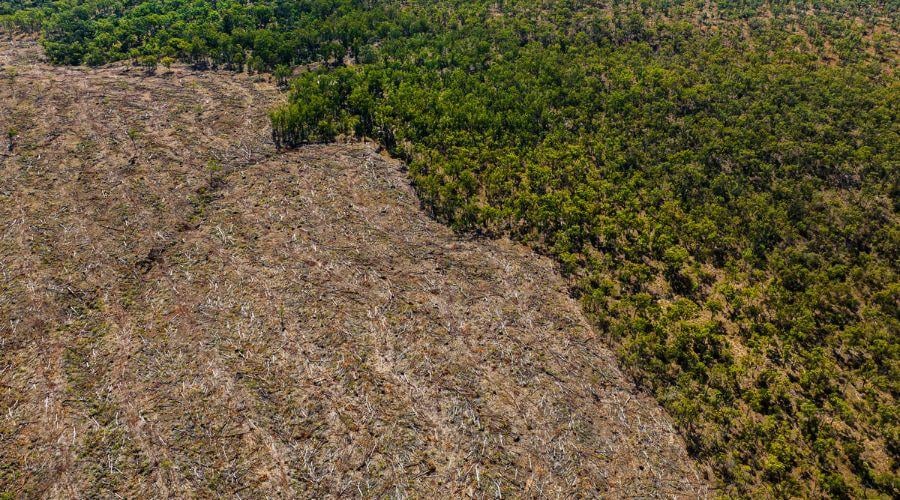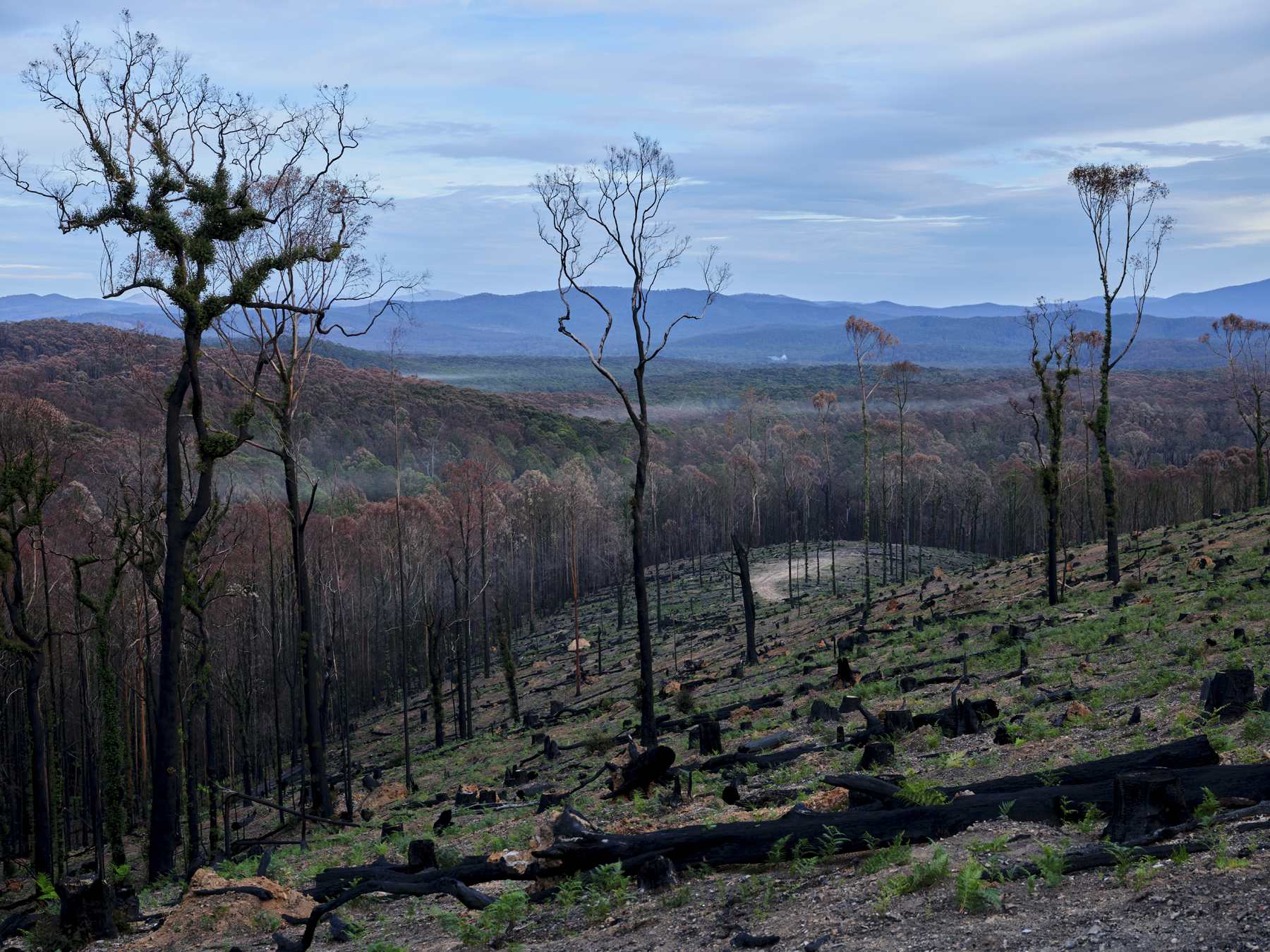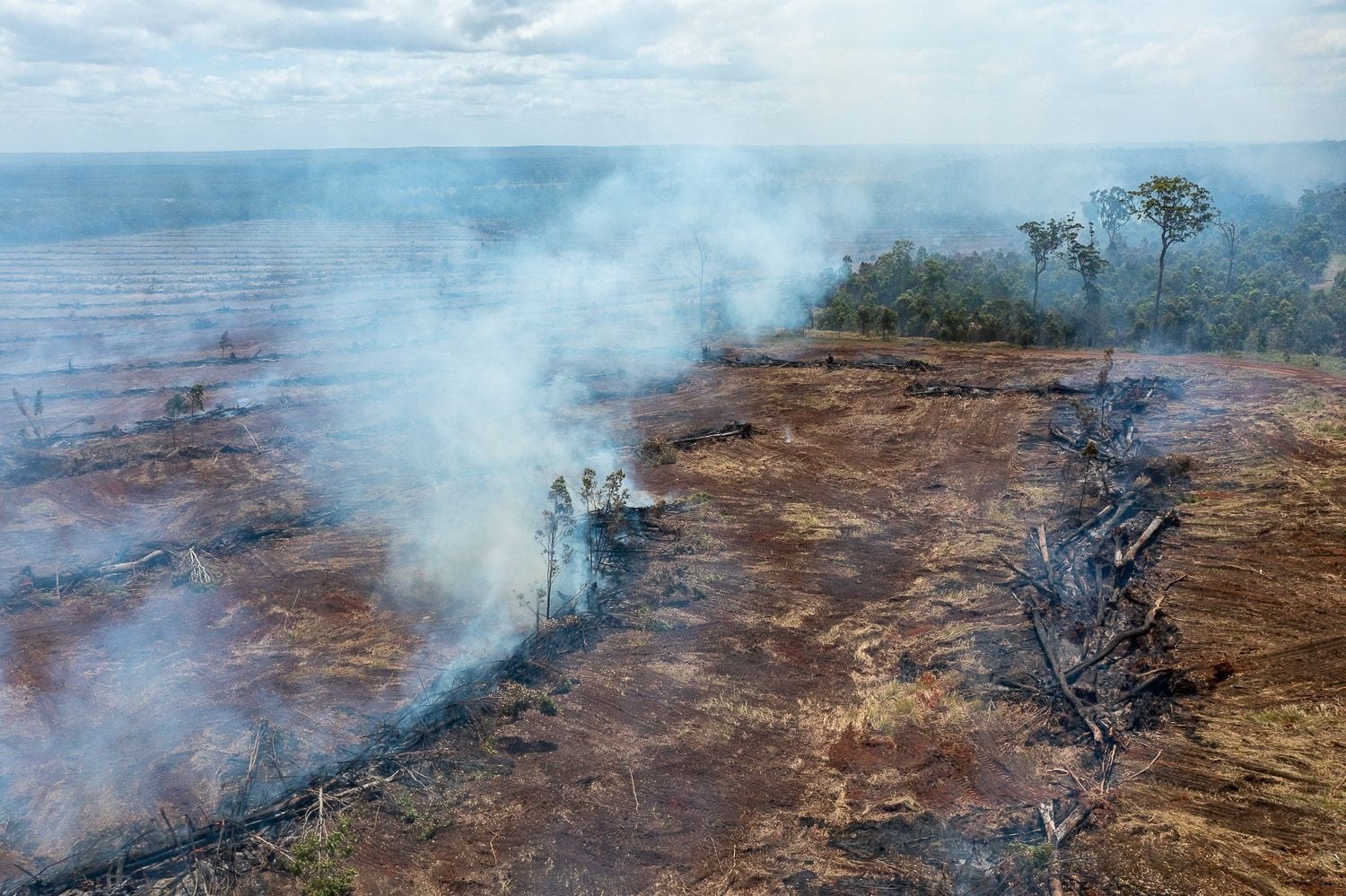

Let’s change our laws for nature
We can secure strong new national laws that actually protect the environment.
We live in a truly special country. But weak environment laws and government inaction have made Australia a world leader in extinction and deforestation.
Self-interested corporations are riding roughshod over communities to damage our environment and health. They're taking advantage of our weak laws to trash our forests, wildlife and climate.
We need robust, new national nature laws that actually work to protect the environment. They need to:
1. Be effective. The priority must be reversing the environmental decline already occurring. They need to actually change the status quo and stop environmental destruction.
2. Be fair. They need to apply across all projects and sectors.
3. Have integrity. The community and First Nations must have a meaningful say in environmental decisions that affect them.
4. Be forward-looking. Nature needs help to thrive in the future, including funding and recovery planning.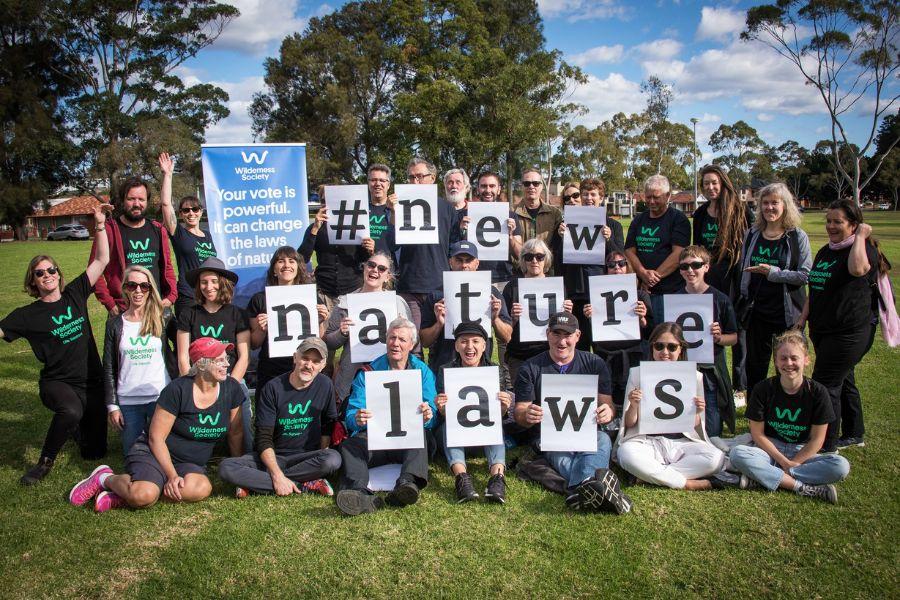
As it prepares to launch a revised set of national nature laws, the government is using the term ‘nature positive’ to describe how its new policy should work. But what does nature positive actually mean?
Australia’s failed national environment law

The Environment Protection and Biodiversity Conservation Act 1999 (the EPBC) is Australia’s national environment law. It has a very important job. The EPBC is meant to stop threats to important habitat for threatened species like the Tasmanian devil, koala, platypus and Leadbeater's possum, safeguard our natural places and ensure all governments work together to protect Australia’s environment and natural diversity of life.
If we had strong national environment laws, the Bramble Cay melomys would still be here. The government failed to fund the recovery plan that should have saved it from the effects of climate change.
And following the devastating 2019-2020 bushfire season, even animals like the relatively common sugar glider could be under threat having lost so much habitat. Now more than ever we need to stop major threats to forests and habitat like logging and deforestation.
Yet our current protections and laws leave many of Australia's animals facing extinction. The Government is required to review the EPBC every ten years, which it did in 2019-2020. As part of the process, we sought to get as many community submissions as possible made into this review, to tell the Government that we expect strong new nature laws. Many of our supporters have added their voices and stories about why nature is important to them by making a public submission to the review.
They're people like Annie from Brisbane, who used her community group training to generate 26 submissions from her community on the review of the EPBC Act. The Wilderness Society also made a submission outlining the essential changes required to the EPBC Act if it is to serve its purpose protecting Australia's wildlife and wilderness.
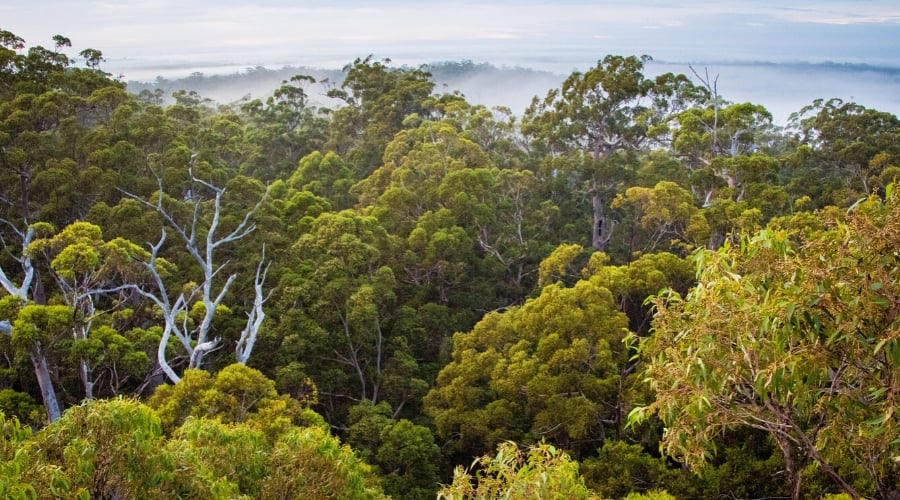
Vested interests are destroying nature

At the heart of the problem is this: our national environment laws are not currently working to protect the environment.
Nothing is off-limits for destruction. Old-growth forests are being bulldozed and logged. Oil drilling still threatens the pristine waters of the Great Australian Bight. Projects that clear the habitats of critically endangered wildlife are rubber-stamped and species are going extinct with no-one taking action to stop it. Vital water catchments are being mined and drained by big businesses with communities powerless to protect their environment.
The EPBC doesn’t even mention or deal with the escalating problem of climate change.
The EPBC has actually locked in environmental destruction. Almost all projects (99.7%) assessed by the Federal Government get rubber-stamped, with just 2% later knocked back by the courts.
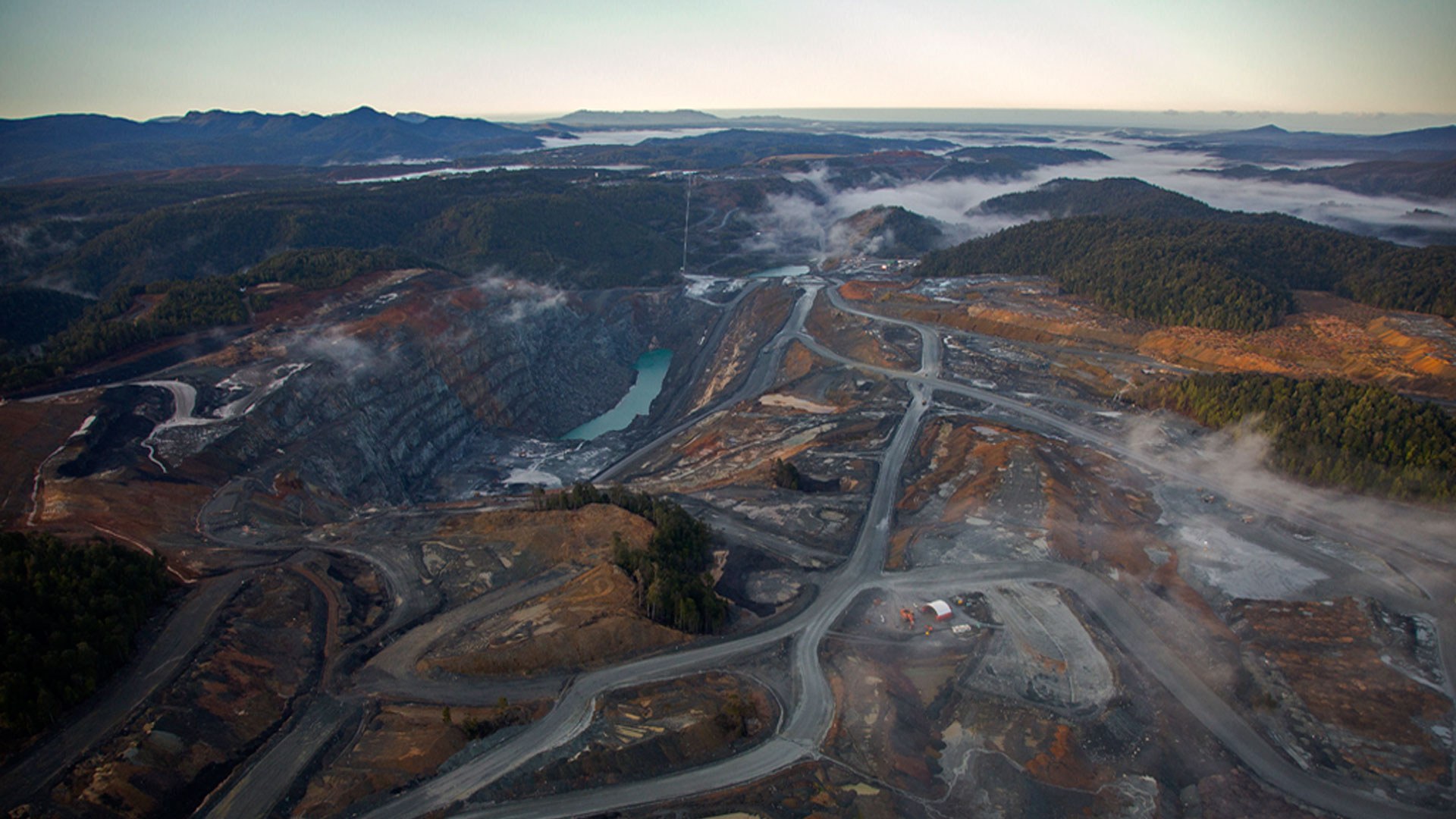
How Australian laws have failed nature—and you
Australia’s forests, waterways and wildlife are now in crisis—and once they’re gone, they're gone forever. Consider these facts:
- Australia has one of the worst rates of species extinction. The government has committed to take action to stop new extinctions, but its policies and budget allocations do not yet align with its promises.
- Old growth forests and homes to endangered species are still being clear-felled for woodchips. In fact, 48 of our forest fauna species are threatened by logging in Australia. Read more about Australian species facing extinction.
- Deforestation rates in Australia are now up there with the destruction of the Amazon which kills wildlife and impacts air and water quality in all communities. Australia is currently one of the world’s top ten deforestation hot spots.
- Climate change is wreaking havoc on our river systems, water supplies, forests and the Great Barrier Reef.
- River pollution and over-extraction of water is decimating our water supplies and natural assets like the Murray-Darling and the Great Barrier Reef.
- The opening up of huge new polluting coal, gas and oil mines threatens the health and livelihoods of local communities and continues to worsen climate change.
Our vision

We need to secure a real future for the native wildlife we care about and protect the forests and landscapes they live in, with cleaner air, more resilient soils, healthy oceans and a climate we can rely on.
We need to properly protect and restore our environment so Australia can be resilient in the face of climate change.
On 8 December 2022 the Environment Minister Tanya Plibersek handed down the long-awaited response to the Samuel Review, which looked into the effectiveness of Australia's national environment law. There were some great announcements from the Environment Minister, but also a lot more detail to come in, as well as some glaring omissions.
Read our full media release.
To truly protect and restore Australia’s nature, we need a new Australian environment law that commits the Australian Government to end deforestation of old-growth forests and critical habitat for endangered animals, to end extinction and to protect our vital waterways and catchments.
We need a National Environment Commission that can be an independent voice for the environment and lead a national approach to planning for the future. The Commission would develop National Environment Plans so:
- We’re all working to the same goals.
- Nature is protected by binding clear national plans and standards—and businesses and communities aren’t dealing with unclear, inconsistent regulation.
We need an independent National Environmental Protection Authority to:
- Enforce the law, without political interference.
- Ensure that damaging projects are assessed independently by experts, not decided on through back room deals with paid lobbyists.
We need to give power back to communities by guaranteeing community rights to ensure that environment laws are enforced fairly and transparently, to have decisions reviewed on the basis of their merits and to ensure all communities have a say in decision-making.

What success looks like
- Zero destruction of primary, remnant, old growth or high conservation value forests and bushland.
- No more fauna or flora extinctions.
- Measurable recovery of numbers or extent and quality of threatened, endangered and critically endangered species and ecosystems.
- Measurable recovery of freshwater ecosystems, including the Murray-Darling Basin.
- Measurable recovery of large, intact and functioning ecosystems (wilderness areas);
- Twenty percent (20%) of every terrestrial and marine bioregion in Australia are protected in a nationally coordinated and consistent system of conservation agreements.
- Federal Government leads the country in ensuring environmental indicators improve.
- Environmental regulation, planning and decision making independent from political parties. These are adequately resourced to achieve outcomes, conducted transparently and fully enforced.
- The community has legislated right to open standing, merits review and third-party enforcement rights under national environmental laws.
- The community and NGO sector have access to consistent, regularly updated and reliable government data on environmental values and greenhouse gas reporting on disaggregated by sector and between sequestration and emissions.
- The community has the ability to effectively participate in and influence environmental decision-making.
Updates on new nature laws
8 December 2022: the Environment Minister Tanya Plibersek handed down the long-awaited response to the Samuel Review, which looked into the effectiveness of Australia's national environment law. "There were some great announcements from the Environment Minister, but also a lot more detail to come in, as well as some glaring omissions," said Wilderness Society National Campaigns Director, Amelia Young.
Read our full media release.
19 July 2022: The Wilderness Society recently attended the National Press Club address by new Environment Minister Tanya Plibersek. The Minister gave a speech on the 2021 State Of The Environment Report and a timetable for reforming Australia's failed environment laws, the EPBC Act.
National Campaigns Director Amelia Young gives her thoughts on the Environment Minister's National Press Club address and the reforms that are urgently needed to turn things around for a natural world in crisis.
July 2020: the Environment Minister outlined how the government intended to respond to an interim review of our nature laws: the Commonwealth wanted the states to implement environmental standards, with no independent watchdog to enforce them. But it wasn't clear if the government could or would get those standards in place before it handed responsibilities to the states, or how it would ensure the states actually follow them.
Suzanne Milthorpe (Nature Laws Campaigner), Gemma Plesman (Deforestation Campaigner) and Tim Beshara (Policy Manager) talk about what we do when governments refuse to act, changing corporate behaviour, and why this is more important than ever.
1 June 2022: The Wilderness Society welcomes the appointment of Tanya Plibersek to Environment Minister.
"The EPBC Act hasn’t been reformed in ways that benefit the environment since it was established," said National Campaigns Director, Amelia Young of the appointment. "The core task will be the response to the Samuel Review."
The Morrison Government ran a once-in-a-decade review of Australia’s failed national environment laws by Prof Graeme Samuel AC. It is a chance to deal with Australia’s appalling extinction record by bringing in strong new national nature laws that work and an independent watchdog to enforce them.
23 November 2020: we appeared in front of the Senate Committee into the Morrison Government’s dodgy changes to our national environment law, the EPBC Act. The Senate Committee heard from 4,400 people who put in a submission to the inquiry in just 48 hours! The Senate needed to see a massive swell of submissions opposing the Government's bill and calling for a meaningful response to the independent review of our environment laws.

